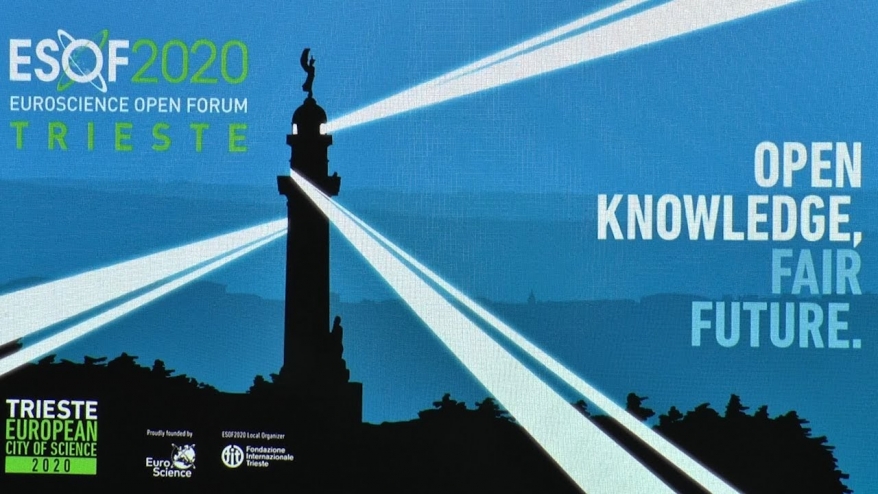It’s July 2018, and we’re in Toulouse. The Euroscience Open Forum (ESOF) is drawing to a close, with keynote talks and thematic sessions posing hypothetical questions about what the next two years might bring. Fast-forward 20 months and Europe is left wondering whether there’ll even be an ESOF to revisit those questions, as a virus-shaped shadow blankets R&D.
Mercifully, the COVID-19 pandemic subsided enough this year to permit a small number of delegates to Trieste, Italy – albeit, adorned by face-masks and with an elevated sense of caution. Now familiar to every researcher, dozens of sessions went virtual and post-talk discussions were channelled through chat boxes instead of microphones.
ESOF marked a ‘crossroads for careers’. Irrepressible movements like Open Science and Responsible Research and Innovation (‘RRI’) have moved beyond conceptualisation, and now need implementation. The issue of their uptake was covered at length in sessions like ‘Scientific data sharing and its impact on scientific careers and their evaluation’ and ‘I want to be an Open Scientist! Research Evaluation and Incentives to boost Open Science and Research Careers’. The general conclusion of these exchanges was that to foster engagement with these ideals, ECRs must be provided with adequate training and reward systems.
Speakers from Eurodoc shared past, present and future innovations in career development in a series of digital discussions. Starting on a cautionary note, Sara Pilia (Equality WG coordinator) shone a spotlight on the plight of ECRs amidst the pandemic, and called for heightened inclusivity as a means to support researchers through this turbulent period.
Eva Hnatkova (Eurodoc Advisory Board) elaborated on the shared declaration between Eurodoc and the Marie Curie Alumni Association on Sustainable Research Careers, reinforcing the idea that institutions must at least fund career support, if they are unable to fund full-time positions. Beata Zwierzynska (Eurodoc Vice-President) complemented this by emphasizing the confidence and good mental health that proper career planning can help ensure.
Elsewhere, Auréa Cophignon (former Eurodoc Vice-President) gave a personal insight into the value of innovation ecosystems in doctoral training, commenting that tools like PhDHub can provide the necessary framework and confidence for obtaining transferable skills. Ana Slavec (Open Science WG coordinator), Eurodoc’s sole representative in Trieste, echoed the significance of skills training during the doctorate, particularly when they can aid intersectoral awareness and mobility.
Finally, Iryna Degtyarova (Eurodoc Advisory Board and Research Integrity WG coordinator) and Giuseppe Montalbano (Eurodoc Treasurer and Pension Officer) discussed two potential tools related to ECR mobility. Iryna explained the progress made in tracking PhD graduates as a means of quality assurance for doctoral training, whilst Giuseppe contributed the ECR viewpoint for Europe-wide pension schemes, such as RESAVER.
The perspective of European politicians was somewhat lacking as gathered attendees quickly reached an obvious consensus over the proposed Horizon Europe budget. The stance of researchers and policymakers is quite clear – defund the vital MSCA and ERC at your peril. Speakers demonstrated how important these instruments have been for ECRs during Horizon 2020, and how effective they can be in bridging the gap between academia, industry and society.
This year’s ESOF Champion, Stefano Fantoni, closed the festival with the statement “knowledge is connection, knowledge is power”. We hope that this sentiment is shared by the whole community, and that the role of the researcher continues to evolve at the benefit of society. And finally, let’s hope we can be in Leiden for ESOF 2022.
Mathew Tata
Eurodoc Board member

